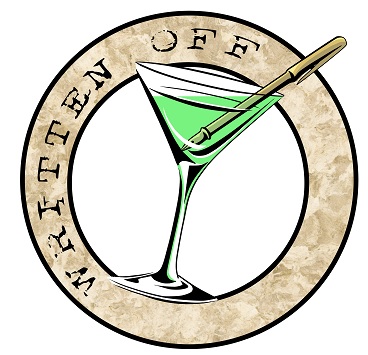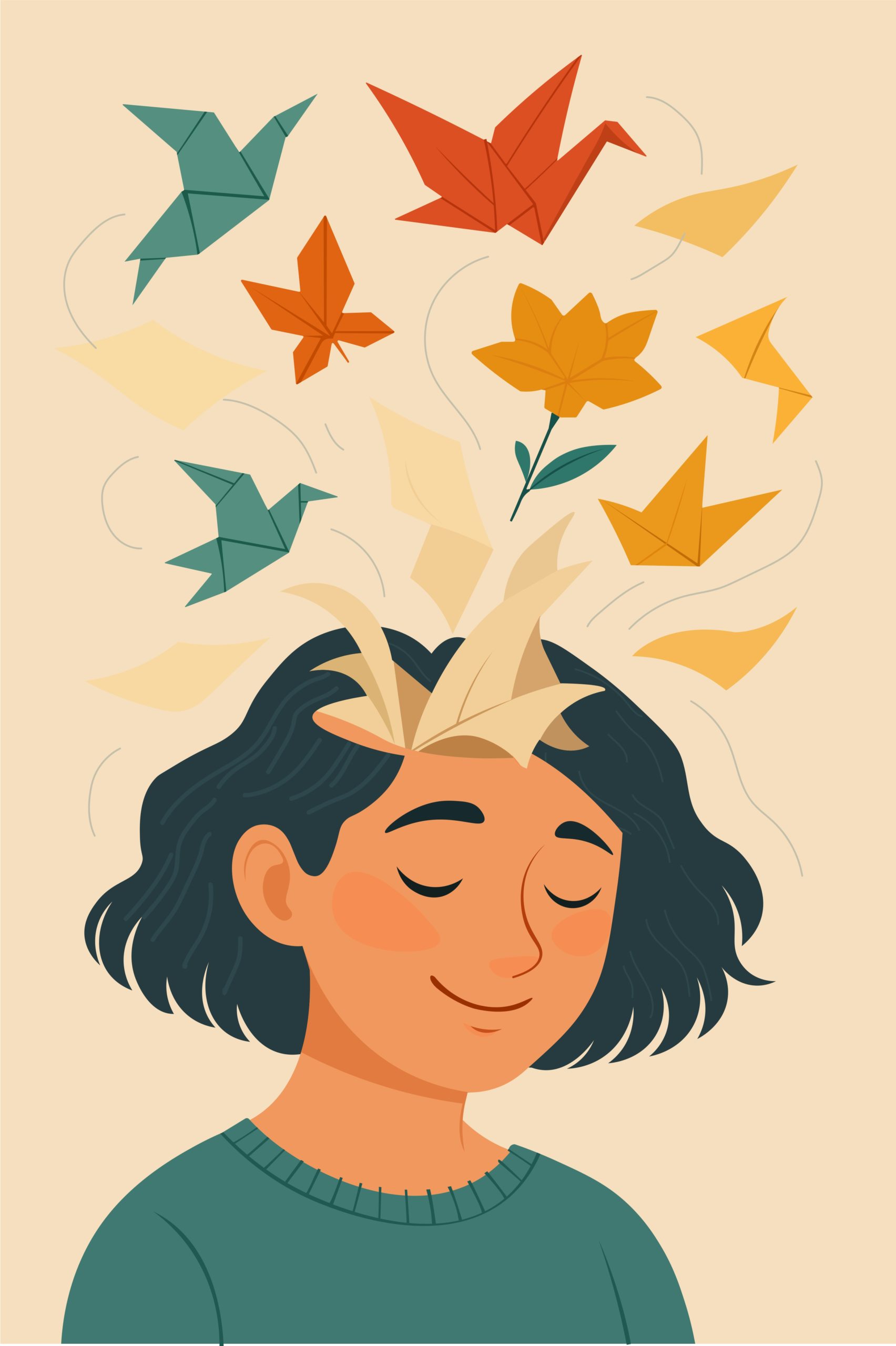A term which I have only recently been made aware of, but of which I have taken advantage of over the years, is the ‘third space’. It is a space where we can go that is outside of our normal lives, our regular day-to-day haunt, that is engaging and a joy to be in. Being in these places can be good for your mental health and help you be more creative and productive. Let’s dig deeper into Third Space which, as a bit of a science fiction writer, I do like the name of.
What is a third space?
The countdown to third space begins with first space, naturally.
Your first space is your home, your base of operations. It is where you sleep, prepare meals and relax in front of the television. It is also where you art, write and read books.
The second space in your life is your place of work. You leave your first space and spend your days at your second space. Traditionally, it is not a place of great personal creativity. It is where you earn money to spend on food, bills and other stuff. I guess you could read books in your lunch break, and write.
A third space is a place you choose to be that is outside of both the first and second places. It is a social surrounding, a place where you can find people of your tribe. It is a space you can go to relax, which is different enough to your usual spaces that you get a shift in mindset.
Ray Oldenburg, an American Sociologist, said that third spaces have seven characteristics. These are:
- Open and Inviting – You don’t need permission to go there, and you can visit these places as often as you’d like.
- Comfortable and informal – there is no uniform or dress code and you feel like you belong.
- Convenient – These places are close enough to you that you can visit them often. Ideally, they are in your own neighbourhood.
- Unpretentious– everyone is equal and on the same social level. There are no memberships or tiered memberships, or special places that only certain people can go. It is not expensive to be there.
- There are regulars – You begin to recognise people you’ve seen there before, and often greet them with a nod or a hello. Often, there is a host who will greet you when you arrive.
- Conversation is the main activity – between friends, or strangers, gossip or current affairs, light-hearted conversation is the main element.
- Laughter is frequent – the mood is light-hearted and playful. Even hearing the sound of laughter can brighten your mood and make you want to come back.
Examples of third spaces include cafes and libraries, parks and beaches. We’ll dive deeper into the types of third spaces later, but first we’ll talk about why they matter.
Why do third spaces matter?
Third spaces matter big time for your mental health and wellbeing.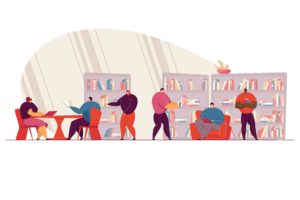
We need to be around people. Even the most introverted of creative people, and those people who espouse that image of the writer being a solitary person, you need human contact. Non-transactional human contact.
We crave community, which is what a third space provides. We can be in a place that is neutral ground, and a place that if it becomes too much we can leave. A third space needs to feel safe for us, and places such as your local library or a local café, can indeed feel like a safe space to be in.
Studies show that there is a rise in feelings of loneliness, especially in younger people. With more and more people turning to online communities, they are missing out on the human connection. Plus, with a rising sense of fear in the world, people are feeling much safer in their home and not venturing outside. Connecting in third spaces is helping to lower anxiety and build a sense of community.
Third spaces can also help us relax because they don’t always require money to participate. Libraries, parks or beaches don’t require you to spend money to stay. In today’s culture of over-saturated capitalism, having somewhere you can go that is free can be such a relief.
The change of environment is also good for your mental health. Spending time in nature with the wind in your hair, the scent of the ocean and the sound of the waves, is good for you. A quiet space where silence is encouraged, like the library, can be a welcome relief from the industrial noise of suburbia.
What are some examples of Third Spaces?
There are third spaces all around you. Some are more obvious than others, some may make you feel obliged to spend money, while others are free to enjoy and participate in.
Local café
There is a feeling of obligation to spend money at a café, which is fair. If you are taking up the seat in someone’s small business, the right thing to do is support that business by purchasing a coffee. If you spend many hours in a café, perhaps think about buying more than one coffee, or even a cake.
I know that when I take my laptop to a café, I write far more content than I would at home. There is a psychological switch in me that says- you’ve gone to this place for a purpose. I would be able to smash out a 1200 word blog over an hour’s lunch at a café because I was focused and I was in a place that was different to my home office.
There is also that cute cliché of writers going to a café to write in their journal, or tap away on their keyboard, or even read a novel. When I see someone at a café and they’ve got stickers on their laptop and are focused on writing, I try to give a nod to them if they ever pick their eyes up off the screen.
Maker Cafes
This is an interesting sub-set of café, where people who are handy and can fix things and just hang out. You can bring items, like bikes, or videos or so on, and they’ll have a look, try and fix it, give it back to you.
These cafes are brilliant at building community. Talking to those who can fix stuff, especially in a world that is so often designed for you to replace something rather than fix it, can be so fulfilling. Part of the community aspect of third spaces is seeing regular people there, and that is exactly what you get at maker cafes. The same people, fixing things and getting along just fine.
They are also keen to teach people. So your adventure to a maker café could have you learning some new skills while making some great friends.
Libraries
I was told once that in this capitalist world, Libraries are one of the only places remaining where you’re not expected to spend any money. They often have community events and workshops, a lot of books you can read, borrow, all for free! There are usually multiple branches under the same banner, and they have free Wi-Fi if you’re a member, and membership is free!
You can find out things which are happening in your local community, join clubs or reading groups, so much more. It is a communal space where like-minded people go, and, again, it is free.
There is also something I found very academic or scholarly about going to a Library. It felt more formal or something, to be there with my laptop, or notepad and pen, writing down world building ideas or creating dialogue.
Parks
Open spaces, green spaces, they are fantastic for your mental health. A place that is open, has more room than your bedroom, a breeze in your hair, the scent of plants washing over you. It sounds grand just reading about it, right?
On a good day you can take a book and read in the park, walk your dog and say hello to other dog walkers. I have seen Tai Chi classes and yoga classes in the park too. I have taken my laptop and written in the park as well, with the ambient sounds plus the squeals of laughter from children playing on the playground nearby. These are things I cannot get working from home.
Plus, just like the library, these third spaces are free to use. You can walk into any park, sit on the grass, take your shoes and socks off and feel the earth between your toes, and not a cent needs to leave your pocket.
The Beach
 Much like the park, a beach is a free space where you can relax with a good book, or your laptop, if you’re careful not to get sand into the keyboard.
Much like the park, a beach is a free space where you can relax with a good book, or your laptop, if you’re careful not to get sand into the keyboard.
There are yoga classes on the beach, the chance to go for a dawn swim in the icy cold waters. Apparently this is great for the circulation, and I am sure one day I might go for such a swim.
Walk your dog, run along the beach, make sand castles, go fossicking for shells or the perfect rock. There are many alternate creative ways to enjoy this third space.
Running/Hiking Clubs
This kind of third space only recently came up in my feeds, and is an interesting idea. These types of clubs seem to piggyback on top of other third spaces themselves, such as parks and trails, however they’ve come into their own that people feel they should be considered their own third space.
By joining a club like this you already have people with a similar interest. This promotes social interaction and the making of acquaintances or friends. You can have conversations, or slip on headphones and listen to music, podcasts or audiobooks while you weave your way through the world.
These clubs also get you out and about, increasing your fitness and wellbeing. Plus, if they’re anything like the walking club I am a part of, it always ends up with a great coffee at a local café.
Third Spaces Moving Online
When COVID-19 struck the world and we went into lockdown, the way we interacted and socialised had to change. Written Off was born from this change. Experts said we needed to find people and hang out online with them, keep that social connection up, even if it couldn’t be in person. So I created Written Off, a solely online writing group (we do meet up in real life), and it has become a kind of third space.
This online community has grown very popular thanks to lockdown. Zoom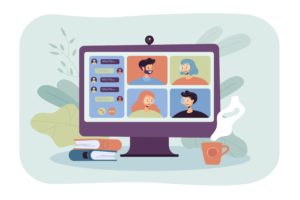 calls, Google hangouts, webinars, chat rooms, even online games, are becoming welcome third spaces, and being recognised as such
calls, Google hangouts, webinars, chat rooms, even online games, are becoming welcome third spaces, and being recognised as such
Online games such as Second Life, World of Warcraft, Eve Online and so many more, became more than just games for some. They were opportunities for people to connect with like-minded individuals, participate in community events and chat about stuff.
I have heard of online romances and even weddings happening in game worlds. While physically they may not tick the boxes of what a third space is, these places are a step away from the everyday, somewhere that is separate from work and home, a place where creativity abounds and stories are told.
Co-working spaces and hot-desking offices
Organisations are trying to create third spaces with office parks, or hot-desking spaces, where you can hire a desk, use the Wi-Fi and do some work, take meetings and so forth. It is a new hybrid, I believe, and is trying to combine second and third spaces into something new.
Places such as this like to crow about the potential to meet people and network, create new business. For me, it is a third space with a commercial interest, a capitalist view. Often you have to pay monthly fees to use these spaces, and there is a focus on work, rather than personal creativity. I do appreciate the effort that businesses are going to, to recognise the power of third spaces, and to make people feel more comfortable in such places.
Go find YOUR third space
I encourage you to find your third space, somewhere that is separate from your home and your work, a place where you can be creative, where there are people to converse with, connect with and more.
I have three cafés I rotate through, and I have my online writing Tribe as my third spaces currently. I’ve visited a few libraries but find the hustle and bustle of cafes to be more my thing. I also have a walking group every fortnight, a park stroll, which always ends up in a café for breakfast.
A friend, whom I shall name the Mistress of Microfiction, has a third space in a couple of libraries, one where they are building a new writing group, and a monthly Writing Salon. They also have some regular roleplaying groups, so they are well entrenched into third spaces, and I can tell their levels of happy are rising because of this.
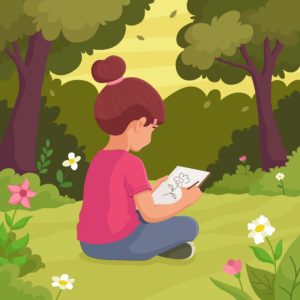 Third spaces are important for your mental health and your physical wellbeing. They can foster a sense of community, of belonging, something we all crave. They can inspire you, break you out of a creative rut, and they can give you great coffee and chats.
Third spaces are important for your mental health and your physical wellbeing. They can foster a sense of community, of belonging, something we all crave. They can inspire you, break you out of a creative rut, and they can give you great coffee and chats.
Do some research, go for a walk along a beach, or through the parks around you, investigate libraries and cafes, see if there are online communities that work for you. Find a space, claim it, own it, and enjoy it.
